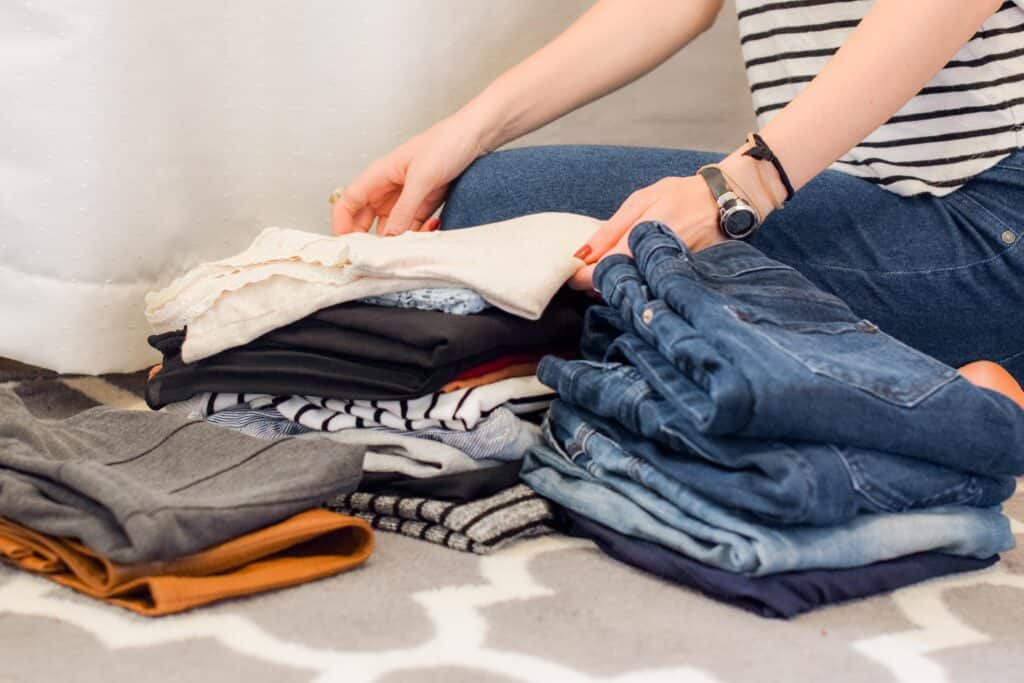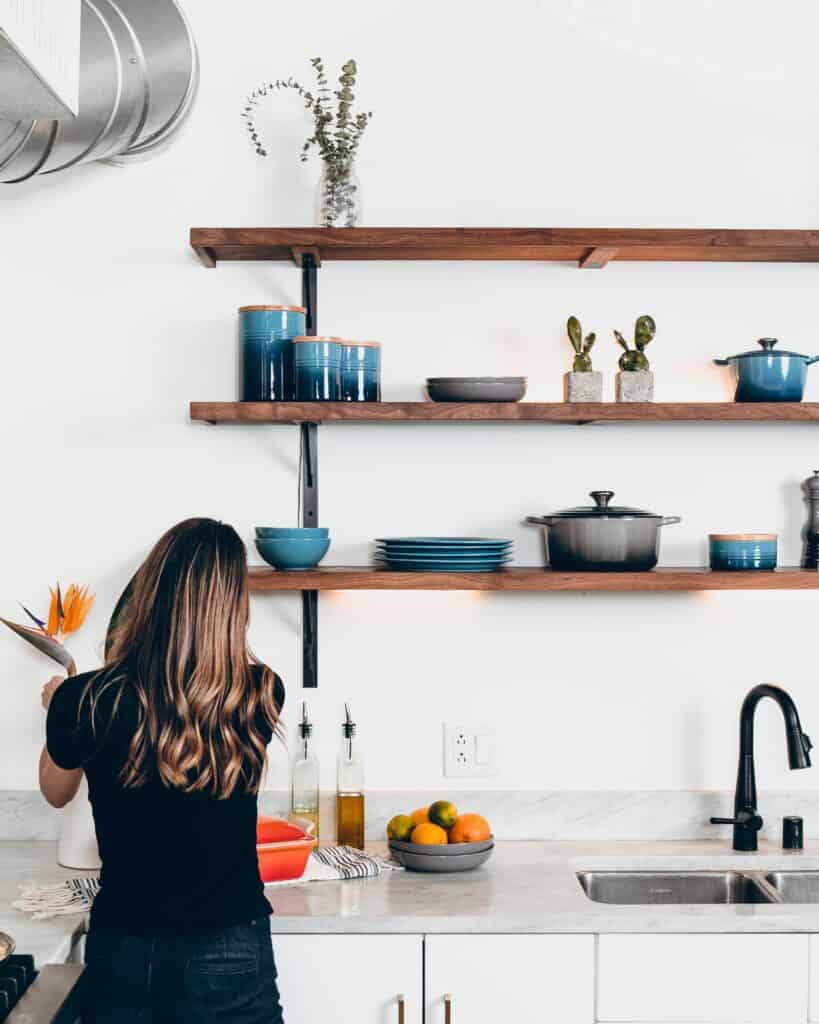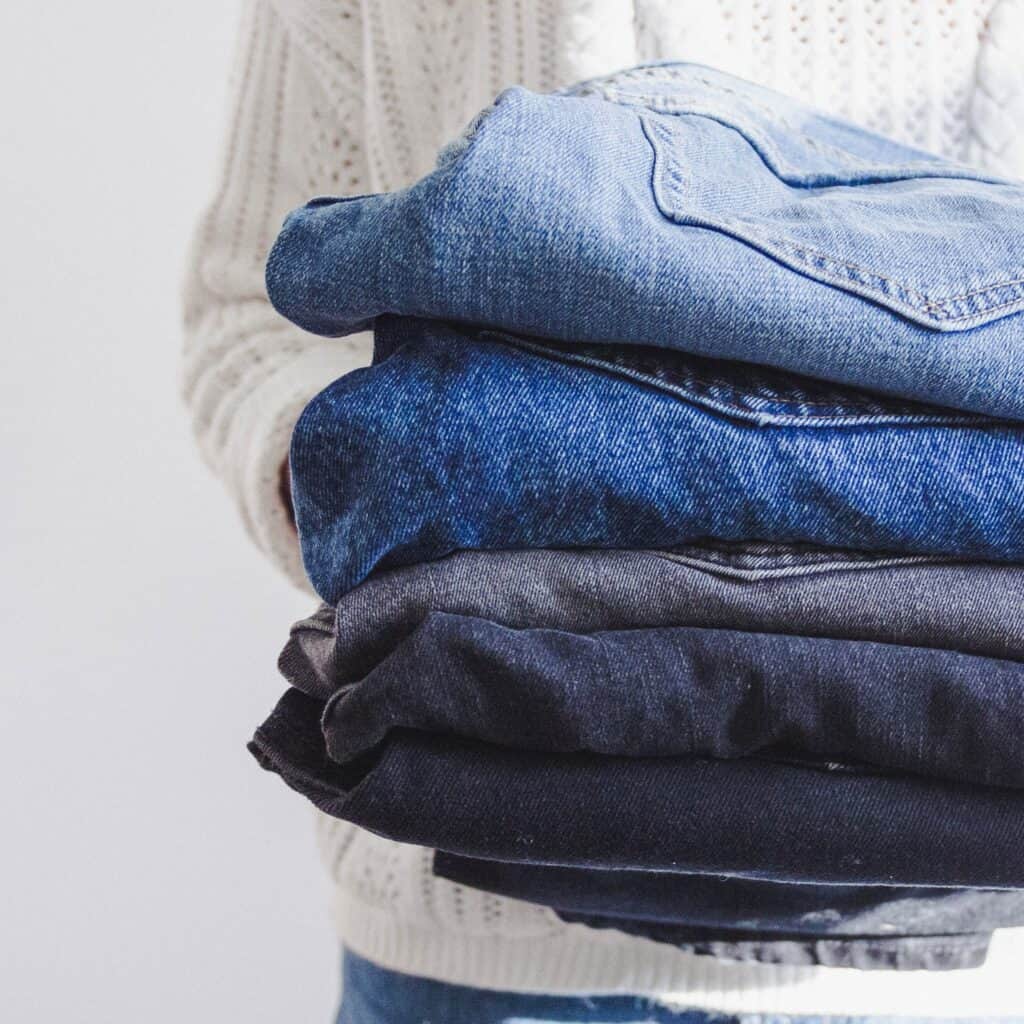
Decluttering is one of my favourite pastimes. It feels so good to open cupboard or drawer and sort it all out. Whether it’s incredibly neat or a complete an utter mess. Or my own default setting of organised chaos. Offloading some forgotten or unused items can feel great. The feeling of everything put neatly back in an orderly fashion isn’t so bad either. But decluttering always comes with cognitive dissonance for me. Whilst I feel literally lighter when I offload some items, there’s always a fear of regret. What happens if I want to wear that item of clothing again one day? Could I need that kitchenware or hardware item in the future and have purchase it again? So, why is decluttering important and how to navigate the process?
For How to Make a House A Home read here.
If You’ve Got It, Flaunt It
Any item we have or keep should be used. As per Marie Kondo, it should spark joy. I live someone in the grey on this one. I think it’s both. There are items I will never use but are important to me. For example, cards received for our wedding or when my daughter was born. Whilst I’ve not kept every one, I’m keeping the ones which hold precious memories.
On the flipside, that item of clothing I’ve not worn in years? Realistically, how often have I thrown out clothes I don’t wear anymore and wanted them back? Once in a blue moon, if that. Unless it’s a staple wardrobe piece or has sentimental value; it needs to go. If I’m honest with myself, items I’ve not used recently either don’t suit my purpose, I don’t like or I forget I have. Ergo, I’m unlikely to use them in the future. Holding on to them means storing or caring for them unnecessarily.
Lighten the Mental Load

We know that a messy room, or cupboard, or whatever can impact our mood. There are times it heightens my stress level, or stops me focussing. There’s also times I can’t fit all the laundry or tupperware in the drawer. And I want to have a full on toddler tantrum. So fed up with cupboards and drawers which require tetris like precision to hold everything. Decluttering literally creates space. Yes, inside our homes. But also inside us. A well-organised room gives me breathing space. There are days I simply can’t relax until the room is organised or neat. Or when I fear trying to find a home for a new item. Knowing full well there is literally no space anywhere. Or finding space will necessitate an entire reshuffle that I have no time for. I don’t need that extra cognitive burden or chores on my to-do list.
For Your Self Care Routine When You Have No Free Time read here.
Let It Go
Sometimes, despite a personal attachment, decluttering some items is a good idea. We may be hanging on to items for the wrong reasons. Even when those reasons are emotional. It may take us time to to come to terms with the end of something. And giving an item away may feel like the final step in closing the door on a relationship, time of life or something else.
Decluttering these items may give us some sense of finality or closure. We may not even realise we need either until we finally unburden ourselves of these items. Rehoming or giving away these kind of items won’t be easy. And I wouldn’t recommend doing it on anyone else’s timeline but your own. But you may find, as months or years pass things may change for you. You may finally process the event or relationship the item symbolizes. And then be ready to remove this item from your life.
Donate and Rehome

At times, decluttering can make us feel guilty. Especially if items are in good condition or quality. Likewise, sometimes we fear needing the items again. Or having to repurchase them and spend more money. To allay these worries remember not everything should be headed for the bin. There are plenty of other options when items are pre-loved rather than junk.
Whilst some items surely are for the disposal, consider other options. Some items may be worth donating to local charity shops. Even items, for example clothes, which are no longer wearable can be donated. Many charities collect clothes which are then recycled and they receive money per weighed bag. When items can’t be donated directly to shops; think broader. Would a local hospital benefit from toys or teddies, or books for children or adults for their wards? How about social care housing? Of course, items can also be resold personally. The number of apps and websites to do this only keep growing. Any of these items can help us feel a bit better about decluttering. Whether that’s recouping some costs by re-selling items. Or donating in various ways to a good cause. Even if you later regret, if it’s done some good in the world it will definitely soften the blow!
What are your tips for decluttering? How do you feel when you do it? Why do you do it? Is it for your mental health? As always, let us know below!

I love to organize, but decluttering is a little more difficult for me because I’m afraid I’m going to throw away something I need. But lately, I’ve been getting into the mindset of thinking that I rarely look at some of the stuff I’m saving, and one day, it will be thrown out anyway. So it’s making it a little easier to give it up.